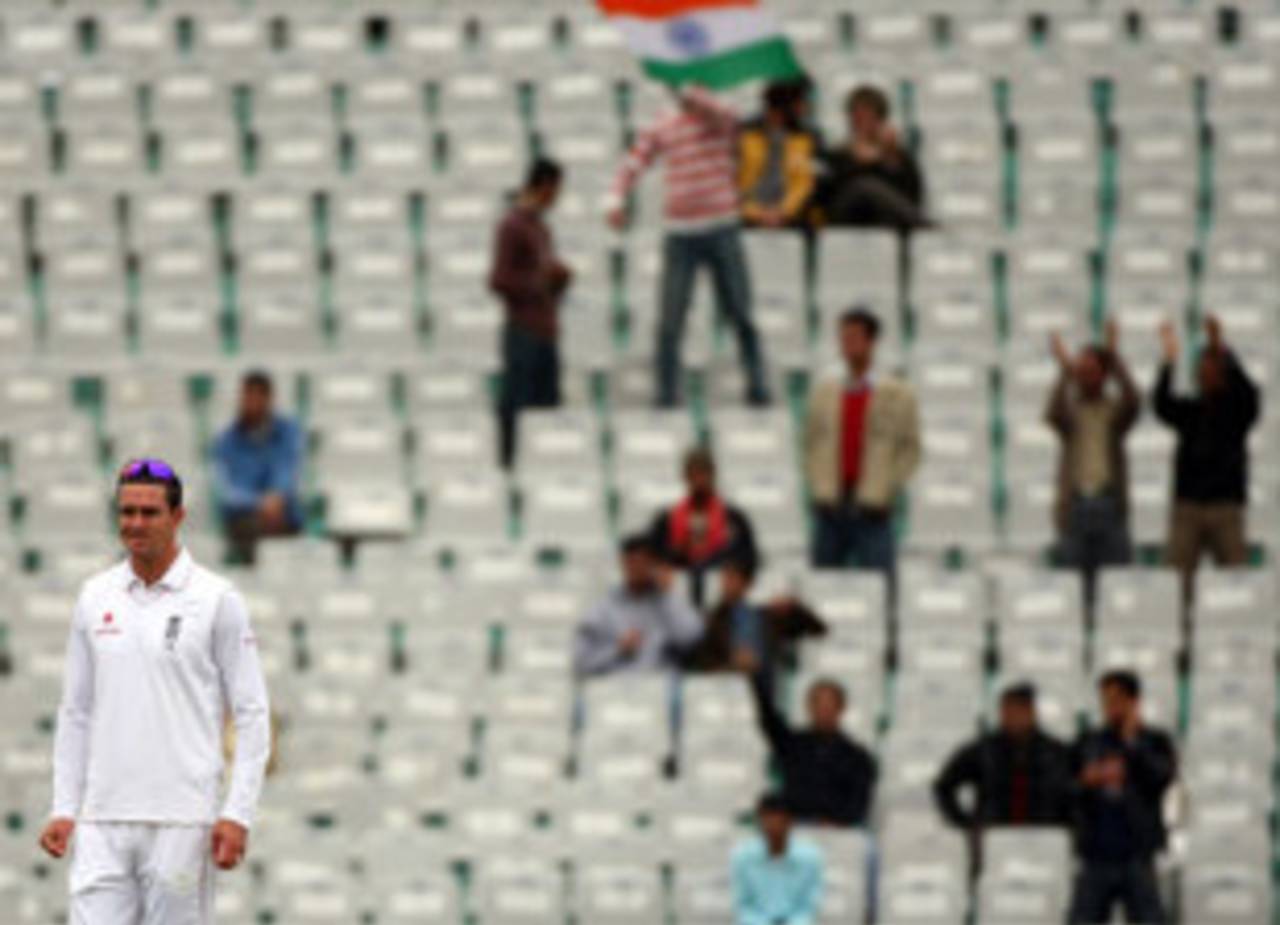Saviour or predator?
In these trying times, Test cricket needs a stronger and more unified governing body - which the ICC in its current form isn't

India v England, Mohali: Test cricket's big problem has been its inability to draw crowds outside Australia and England • Getty Images
As long as the ICC is scheduling some tournaments and the individual countries continue to organise other matches separately, the international itinerary will never be co-ordinated and manageable
Former Australia captain Ian Chappell is now a cricket commentator and columnist